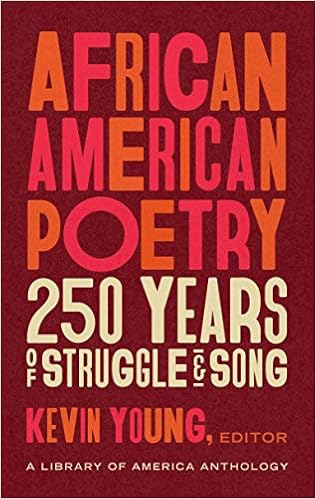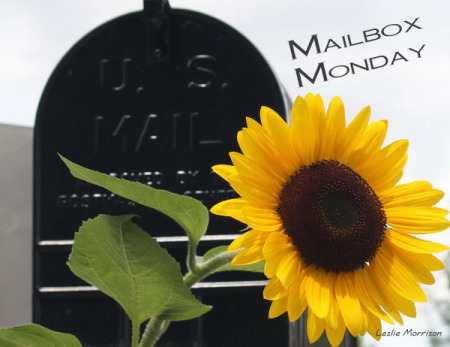
It now has it’s own blog where book bloggers can link up their own mailbox posts and share which books they bought or which they received for review from publishers, authors, and more.
Leslie, Martha, and I also will share our picks from everyone’s links in the new feature Books that Caught Our Eye. We hope you’ll join us.
ALERT: We’re looking for a new host to help us with MM — if you have experience with WordPress or Mr. Linky, feel free to apply.
Here’s what we received:
These are the books I won on Instagram from Capitol Hill Books and The Literary Hill BookFest:

Blue Laws gathers poems written over the past two decades, drawing from all nine of Kevin Young’s previously published books of poetry and including a number of uncollected, often unpublished, poems. From his stunning lyric debut (Most Way Home, 1995) and the amazing “double album” life of Jean-Michel Basquiat (2001;”remixed” for Knopf in 2005), through his brokenhearted Jelly Roll: A Blues (2003) and his recent forays into adult grief and the joys of birth in Dear Darkness (2008) and Book of Hours (2014), this collection provides a grand tour of a poet whose personal poems and political poems are equally riveting. Together with wonderful outtakes and previously unseen blues, the profoundly felt poems here of family, Southern food, and loss are of a piece with the depth of personal sensibility and humanity found in his Ardency: A Chronicle of the Amistad Rebels or bold sequences such as “The Ballad of Jim Crow” and a new “Homage to Phillis Wheatley.”

Over a quarter-century’s work from the 2003 winner of the Arrell Gibson Award for Lifetime Achievement.
This collection gathers poems from throughout Joy Harjo’s twenty-eight-year career, beginning in 1973 in the age marked by the takeover at Wounded Knee and the rejuvenation of indigenous cultures in the world through poetry and music. How We Became Human explores its title question in poems of sustaining grace.

This work has been selected by scholars as being culturally important, and is part of the knowledge base of civilization as we know it. This work was reproduced from the original artifact, and remains as true to the original work as possible. Therefore, you will see the original copyright references, library stamps (as most of these works have been housed in our most important libraries around the world), and other notations in the work.
This work is in the public domain in the United States of America, and possibly other nations. Within the United States, you may freely copy and distribute this work, as no entity (individual or corporate) has a copyright on the body of the work.
As a reproduction of a historical artifact, this work may contain missing or blurred pages, poor pictures, errant marks, etc. Scholars believe, and we concur, that this work is important enough to be preserved, reproduced, and made generally available to the public. We appreciate your support of the preservation process, and thank you for being an important part of keeping this knowledge alive and relevant.

On paper, Jazmine, Judith, Erin and Sara have little in common – they’re very different people leading very different lives. And yet at book club meetings in an historic carriage house turned bookstore, they bond over a shared love of reading (and more than a little wine) as well as the growing realization that their lives are not turning out like they expected.
Former tennis star Jazmine is a top sports agent balancing a career and single motherhood. Judith is an empty nester questioning her marriage and the supporting role she chose. Erin’s high school sweetheart and fiancé develops a bad case of cold feet, and Sara’s husband takes a job out of town saddling Sara with a difficult mother-in-law who believes her son could have done better – not exactly the roommate most women dream of.
With the help of books, laughter, and the joy of ever evolving friendships, Jazmine, Judith, Erin and Sara find the courage to navigate new and surprising chapters of their lives as they seek their own versions of happily-ever-after.
What did you receive?






